Michelle Worthington's Blog, page 26
October 12, 2015
The definition of a Successful Author
You would get a different definition of “a successful author” from every author you asked, except the one constant is it is quite unlike their present existence. The proverb, “the grass is always greener on the other side” is so popular because most people want what they don’t have.

People often talk about “when they become a full time author” as the sort of life they would choose to lead that would eliminate as many of the heartaches and pain and maximise the amount of pleasure and fulfilled dreams that writing full time brings. Even though I don't earn enough money to make a full time income from my writing, I have to be honest that I am writing full-time.
A person with no money is likely to want a life with plenty of money and with freedom from financial worries. A person with a big income and heavy responsibilities may want a less complicated life. But we all think of “success” in terms of desirable things we do not have.
To enjoy life completely, we would want to be healthy and we would want to have the time to do the things we enjoy, and an income to match. As authors, we all want to lead rich, satisfying lives surrounded by the people we love, and for them to lead “the good life” too, either paid for by our writing or with the time to do nothing other than earn an income from our writing.
For me, the measure of being a successful author is not just a matter of possessions, popularity, health, good looks and the like, although that would be nice, and it has to do not so much with what I have but who I am as an author. None of this ‘fake it till you make it’ hype. My happiness has always been genuine with my writing and that will never change. Success and happiness are not mutually exclusive. My definition of a successful author, when I really feel like I have made it, is when my books no longer hide on the bottom shelf under W in bookstores, if they appear there at all, perhaps on their own little cardboard stand and when my family are supported by the income I make from my books and associated business activities. This is not everyone's idea of success, but it's a good idea to work out what your idea is so you have goals to work towards.
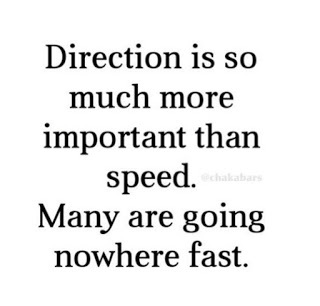
From the bottom of my heart and the bottom of the bookshelf, I wish you every success in attaining your goals as an author.
Talk soon.
x Michelle
www.michelleworthington.com

People often talk about “when they become a full time author” as the sort of life they would choose to lead that would eliminate as many of the heartaches and pain and maximise the amount of pleasure and fulfilled dreams that writing full time brings. Even though I don't earn enough money to make a full time income from my writing, I have to be honest that I am writing full-time.
A person with no money is likely to want a life with plenty of money and with freedom from financial worries. A person with a big income and heavy responsibilities may want a less complicated life. But we all think of “success” in terms of desirable things we do not have.
To enjoy life completely, we would want to be healthy and we would want to have the time to do the things we enjoy, and an income to match. As authors, we all want to lead rich, satisfying lives surrounded by the people we love, and for them to lead “the good life” too, either paid for by our writing or with the time to do nothing other than earn an income from our writing.
For me, the measure of being a successful author is not just a matter of possessions, popularity, health, good looks and the like, although that would be nice, and it has to do not so much with what I have but who I am as an author. None of this ‘fake it till you make it’ hype. My happiness has always been genuine with my writing and that will never change. Success and happiness are not mutually exclusive. My definition of a successful author, when I really feel like I have made it, is when my books no longer hide on the bottom shelf under W in bookstores, if they appear there at all, perhaps on their own little cardboard stand and when my family are supported by the income I make from my books and associated business activities. This is not everyone's idea of success, but it's a good idea to work out what your idea is so you have goals to work towards.

From the bottom of my heart and the bottom of the bookshelf, I wish you every success in attaining your goals as an author.
Talk soon.
x Michelle
www.michelleworthington.com
Published on October 12, 2015 15:00
October 11, 2015
Opening the library doors for a new age in Australian Picture Books
Australian children's books have always endeavored to capture the uniqueness of the Australian way of life. Books such as "Dot and the Kangaroo" (1899) by Ethel Pedley, "The Magic Pudding, the Adventures of Bunyip Bluegum" (1918) by Norman Lindsay, "Tales of Snugglepot and Cuddlepie" (1918) by May Gibbs, "Blinky Bill" (1933) by Dorothy Wall have played a huge part in establishing our national identity.
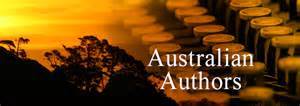
Australian picture books had their golden age in the 1970’s. Mem Fox's "Possum Magic" illustrated by multi award winning artist Julie Vivas, David Cox’s “Tin Lizzie” were the staples of school and home bookshelves. “Who Sank the Boat?” by Pamela Allen , “Diary of a Wombat” by Jackie French and Alison Lester’s and Margaret Wild’s fabulously simple and engaging stories were to follow, including a stream of Mem Fox classics.
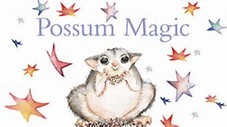 But what is next? These books are still best sellers but do they still represent our national identity? More than ever, publishers are no longer accepting un-solicited manuscripts and are doubtful of investing in unknown authors. Smaller independent publishers, when they are not being swallowed Pacman style by the bigger publishers, are doing their best to build a groundswell of new and exciting manuscripts, but they are often unable to get their books into the bookstores, who themselves are skeptical to take on unknown authors and are sticking to best selling, well known and mass produced books.Where does this leave the emerging Australian authors? Developing an online presence and learning to market yourself as an author and in turn your publications is now par for the course of becoming a successful writer. "Self Publishing’ is becoming less of a dirty word, as it becomes a viable avenue for getting your work out into the market, in the hope that a traditional publisher will ‘hear’ of you and consider your subsequent works. There is a lot more to becoming a successful Australian author than there was 40 years ago.We can take courage from the fact that emerging Australian picture books are some of the best quality in the world. We write with heart and a uniquely Australian voice. What we need is governments, bookstores and publishers to acknowledge and support the new voice of authors coming through to replace the old one that is curling around the edges. That is not at all to say the books written over three decades ago are not loved and timeless and they absolutely have a place in the hearts of modern children, because their parents loved them and parents pass onto their children the books they love. What I believe is the new generation of children must be given the opportunity to find their own 'timeless loves' from the new voice in Australian literature and the only way they can do that is if emerging authors are given a fair chance for their voice to be heard. This can't happen as long as we hold on with both hands to the past.
But what is next? These books are still best sellers but do they still represent our national identity? More than ever, publishers are no longer accepting un-solicited manuscripts and are doubtful of investing in unknown authors. Smaller independent publishers, when they are not being swallowed Pacman style by the bigger publishers, are doing their best to build a groundswell of new and exciting manuscripts, but they are often unable to get their books into the bookstores, who themselves are skeptical to take on unknown authors and are sticking to best selling, well known and mass produced books.Where does this leave the emerging Australian authors? Developing an online presence and learning to market yourself as an author and in turn your publications is now par for the course of becoming a successful writer. "Self Publishing’ is becoming less of a dirty word, as it becomes a viable avenue for getting your work out into the market, in the hope that a traditional publisher will ‘hear’ of you and consider your subsequent works. There is a lot more to becoming a successful Australian author than there was 40 years ago.We can take courage from the fact that emerging Australian picture books are some of the best quality in the world. We write with heart and a uniquely Australian voice. What we need is governments, bookstores and publishers to acknowledge and support the new voice of authors coming through to replace the old one that is curling around the edges. That is not at all to say the books written over three decades ago are not loved and timeless and they absolutely have a place in the hearts of modern children, because their parents loved them and parents pass onto their children the books they love. What I believe is the new generation of children must be given the opportunity to find their own 'timeless loves' from the new voice in Australian literature and the only way they can do that is if emerging authors are given a fair chance for their voice to be heard. This can't happen as long as we hold on with both hands to the past.
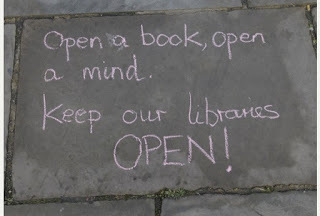
That is why teacher librarians are so important. They source books they feel have value and are open to discovering new talent from the local pool of authors. Teacher librarians have the unique opportunity to be impartial when it comes to introducing children to picture books, deciding on a curriculum based on content, not fame. As the government provide less and less funding for full time teacher librarians, when in some cases libraries are not even open the whole school week, this outlet for children to be exposed to new books and for them to make up their own mind about what and who they like is slowly disintegrating. It's a national disgrace.

If we all work together to have our voices heard, our time will come. Never give up hope that your book could be the next ‘Australian Classic.”
Talk soon
x Michelle
www.michelleworthington.com

Australian picture books had their golden age in the 1970’s. Mem Fox's "Possum Magic" illustrated by multi award winning artist Julie Vivas, David Cox’s “Tin Lizzie” were the staples of school and home bookshelves. “Who Sank the Boat?” by Pamela Allen , “Diary of a Wombat” by Jackie French and Alison Lester’s and Margaret Wild’s fabulously simple and engaging stories were to follow, including a stream of Mem Fox classics.
 But what is next? These books are still best sellers but do they still represent our national identity? More than ever, publishers are no longer accepting un-solicited manuscripts and are doubtful of investing in unknown authors. Smaller independent publishers, when they are not being swallowed Pacman style by the bigger publishers, are doing their best to build a groundswell of new and exciting manuscripts, but they are often unable to get their books into the bookstores, who themselves are skeptical to take on unknown authors and are sticking to best selling, well known and mass produced books.Where does this leave the emerging Australian authors? Developing an online presence and learning to market yourself as an author and in turn your publications is now par for the course of becoming a successful writer. "Self Publishing’ is becoming less of a dirty word, as it becomes a viable avenue for getting your work out into the market, in the hope that a traditional publisher will ‘hear’ of you and consider your subsequent works. There is a lot more to becoming a successful Australian author than there was 40 years ago.We can take courage from the fact that emerging Australian picture books are some of the best quality in the world. We write with heart and a uniquely Australian voice. What we need is governments, bookstores and publishers to acknowledge and support the new voice of authors coming through to replace the old one that is curling around the edges. That is not at all to say the books written over three decades ago are not loved and timeless and they absolutely have a place in the hearts of modern children, because their parents loved them and parents pass onto their children the books they love. What I believe is the new generation of children must be given the opportunity to find their own 'timeless loves' from the new voice in Australian literature and the only way they can do that is if emerging authors are given a fair chance for their voice to be heard. This can't happen as long as we hold on with both hands to the past.
But what is next? These books are still best sellers but do they still represent our national identity? More than ever, publishers are no longer accepting un-solicited manuscripts and are doubtful of investing in unknown authors. Smaller independent publishers, when they are not being swallowed Pacman style by the bigger publishers, are doing their best to build a groundswell of new and exciting manuscripts, but they are often unable to get their books into the bookstores, who themselves are skeptical to take on unknown authors and are sticking to best selling, well known and mass produced books.Where does this leave the emerging Australian authors? Developing an online presence and learning to market yourself as an author and in turn your publications is now par for the course of becoming a successful writer. "Self Publishing’ is becoming less of a dirty word, as it becomes a viable avenue for getting your work out into the market, in the hope that a traditional publisher will ‘hear’ of you and consider your subsequent works. There is a lot more to becoming a successful Australian author than there was 40 years ago.We can take courage from the fact that emerging Australian picture books are some of the best quality in the world. We write with heart and a uniquely Australian voice. What we need is governments, bookstores and publishers to acknowledge and support the new voice of authors coming through to replace the old one that is curling around the edges. That is not at all to say the books written over three decades ago are not loved and timeless and they absolutely have a place in the hearts of modern children, because their parents loved them and parents pass onto their children the books they love. What I believe is the new generation of children must be given the opportunity to find their own 'timeless loves' from the new voice in Australian literature and the only way they can do that is if emerging authors are given a fair chance for their voice to be heard. This can't happen as long as we hold on with both hands to the past. 
That is why teacher librarians are so important. They source books they feel have value and are open to discovering new talent from the local pool of authors. Teacher librarians have the unique opportunity to be impartial when it comes to introducing children to picture books, deciding on a curriculum based on content, not fame. As the government provide less and less funding for full time teacher librarians, when in some cases libraries are not even open the whole school week, this outlet for children to be exposed to new books and for them to make up their own mind about what and who they like is slowly disintegrating. It's a national disgrace.

If we all work together to have our voices heard, our time will come. Never give up hope that your book could be the next ‘Australian Classic.”
Talk soon
x Michelle
www.michelleworthington.com
Published on October 11, 2015 15:00
October 8, 2015
Top 5 Tips for Marketing your Picture Book
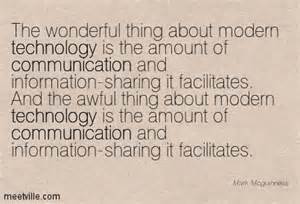 Marketing your own book, whether traditionally or self-published is a necessary evil of being an author in the 21st century. For those of us who are most at home behind a computer, in our PJs, drinking coffee by the bucket load, this can be a mile outside our comfort zone, but if you look at your writing career as a business, and tackle the marketing of your books in small, bite size pieces, it doesn't have to be something that takes the fun out of publishing your story.
Marketing your own book, whether traditionally or self-published is a necessary evil of being an author in the 21st century. For those of us who are most at home behind a computer, in our PJs, drinking coffee by the bucket load, this can be a mile outside our comfort zone, but if you look at your writing career as a business, and tackle the marketing of your books in small, bite size pieces, it doesn't have to be something that takes the fun out of publishing your story.
Tip 1: Book Appeal
Unfortunately, some genres of picture books seem to be better received than others. Commercial fiction is always easier to market. If you are writing non-fiction, make sure you develop a strong reputation in the field you are writing in so that you can vouch for the integrity of the information, as well as using your credentials as a marketing tool in its own right. Children's picture books must reflect current learning and development and be relevant to your target audience. Remember, with books for children, your audience are the readers but your target market is the people who buy the books for them. You must appeal to both.
Tip 2: Networking
No modern marketing tool can compete with collaborating with your fellow authors to help each other break through the white noise and give your book a personal recommendation. Constantly connect with your peers to keep you grounded in the current climate of the publishing industry, learn from their experiences and share your own knowledge for the greater good. This can be online or face to face, but never underestimate the marketing power of networking.
Tip 3: Attend Events
Whether you attend as a guest speaker or an audience member, attending book events is a great way to engage readers, expand your network and learn, learn, learn from those in the know. Although they can be quite expensive, they are a tax deduction and in most cases, if you volunteer, you can attend at a reduced price or for free. Work the ones that have the most intrinsic value to what you write and what level you are at with your writing into your business budget and plan ahead with babysitters/catching up with friends/ transport to make the experience as rewarding as possible.
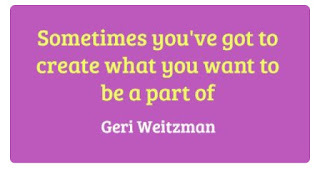
Tip 4: Embrace Technology
We are the first generation of authors who have unlimited worldwide access to our readers via social media. Like it or not, you must have a website and an online presence. Get comfortable using the types of technology your readers and target market use, not only to be confident sharing your work to build your online platform, but also to make use of the tools that give an insight into analytics that will let you know which ways are connecting more efficiently than others, in order to cut down on spamming and focus on what works.
Tip 5: Find a balance
Not only do you need to find a balance between spending time marketing and spending time writing, you need to find a balance with what you are putting on your social platforms that gives your audience an opportunity to hear about your work without them getting sick to death of seeing your posts constantly plugging your books. There is a 30/70 rule that states 30% of the content should be marketing your book, 70% should be general content letting them know a little more about you, your likes and dislikes and giving them the opportunity to connect with you as a person. It's not called "social" media for nothing. Don't shout about your books, build a community of people who will support your success and shout about it for you.
As authors, we need to continually adapt our online marketing strategies to a dynamic publishing industry, not only if we want to stay viable as authors that large publishing companies would like to invest in, but so we can stay on our readers radars. Break it down into small steps and don't let it overwhelm you. If I can do it, you can too.
Talk soon
x Michelle
www.michelleworthington.com
Published on October 08, 2015 15:00
October 7, 2015
Noah Chases The Wind honoured in the Moonbeam Children's Book Awards
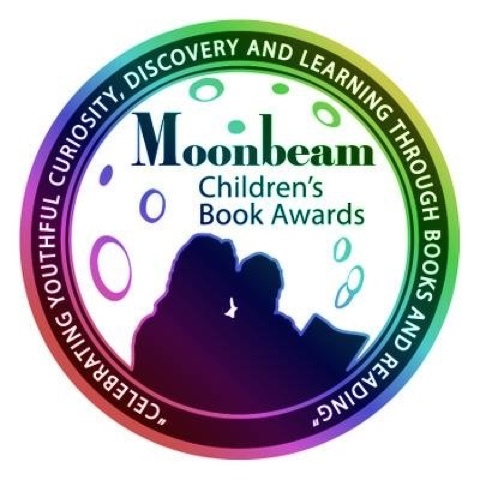 Noah Chases The Wind has won a Bronze Award in the 2015 Moonbeam Children's Book Awards! Thank you to Joseph Cowman and Redleaf Press for bringing Noah to life. It was inspired by a real little boy named Noah and has information for caregivers of children on the autism spectrum.
Noah Chases The Wind has won a Bronze Award in the 2015 Moonbeam Children's Book Awards! Thank you to Joseph Cowman and Redleaf Press for bringing Noah to life. It was inspired by a real little boy named Noah and has information for caregivers of children on the autism spectrum.
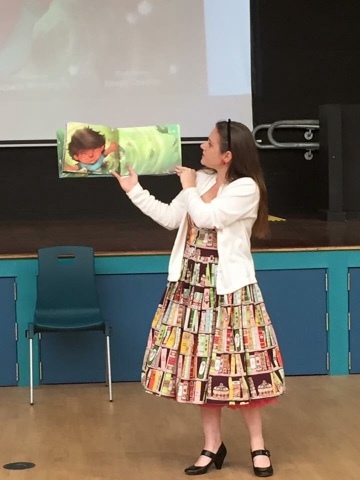 Thank you for your support, Noah. You inspire me to write stories that kids can see their reflection in.
Thank you for your support, Noah. You inspire me to write stories that kids can see their reflection in. 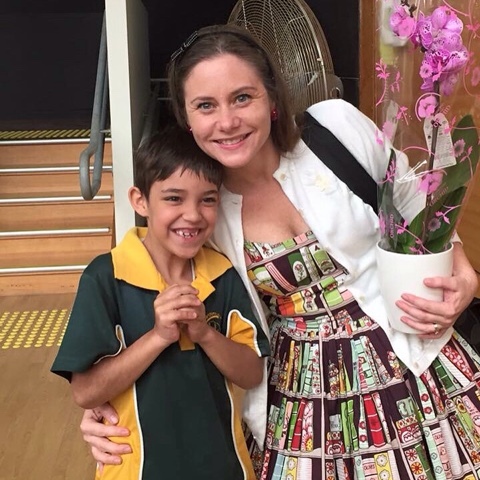 www.michelleworthington.com
www.michelleworthington.comwww.michelleworthington.com
Published on October 07, 2015 21:49
Why are kids labelled 'reluctant' readers?
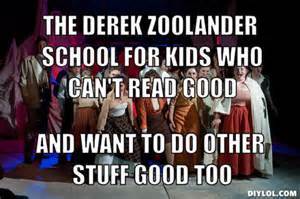
These days, kids who are not confident readers are labelled 'reluctant.' This to me seems a very generic word that doesn't take into account the many and varied reasons a child is not reading at their 'age appropriate' level. As a parent, you need to take charge of this. Here are some very simple ideas you can look into, to get a more comprehensive explanation about why your child has been put in the 'too hard' basket.
First, have their eyes checked. Most optometrists recommend your children be examined every year for families with older siblings/parents who wear glasses and every two years otherwise. Kids don't know if their vision is unclear, but you can see tell tale signs of squinting, holding the book too close or far away and getting headaches after school. In most cases, eye checks are bulk billed so it wont cost you anything to check.
Secondly, set a trap to catch your child reading. It is important watch your child at home to find out their reading habits. Its a good idea to look and see if they are independently reading to themselves if there are books 'left out' for them to pick up. If they have no problems reading and understanding an age appropriate book in their heads, you might find the real problem lies with them not wanting to read out loud. Unfortunately, this is the only way a teacher can determine if they are reading correctly so you need to get them used to it, at least just for school. A good thing to mention is that they don't have to read aloud forever, just until the teacher can see they are reading all by themselves.
If they are still struggling, here are some simple tips to get them used to the sound of their own voice.
Step1: get them to hum while they are reading, not saying any words, just making a sound so they have to learn to read and listen to their own voice at the same time.
Step 2: start saying the words but in a very flat, low monotone voice, with no expression. It is harder than it sounds and the kids will soon learn that it is easier to read with a natural intonation.
Step 3: when they are confident, as the teacher for a private before or after school appointment and have your child read them with no other kids listening so they can see the level of reading your child is actually attaining. Hopefully then, if you have a good teacher, they can help your child with other confidence boosting techniques in the class room to encourage them to read in front of others.
Thirdly, if your child is really struggling with learning to read, have them independently assessed by a speech pathologist. Many learning difficulties are overlooked because children fudge through reading time and are kept at a level under their actual comprehension in their early years of schooling and then slip through the cracks in older grades when reading becomes more independent. You know your child better than anyone else, and teachers have so much pressure on them these days with work load and extra responsibilities, it is our responsibility as parents to take matters into our own hands and go into bat for our kids when we know something is just not quite right.
So when your 'reluctant' reader says to you:
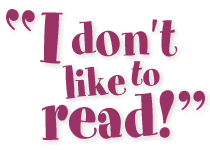 take the time to dig a little deeper and don't let your square peg be dismissed because they don't fit into the system's round hole. Reading is a life skill that is essential to all future endeavours and you can never do too much to ensure your child feels comfortable learning to read. It is absolutely within your power to give your child the gift of reading. Talk soon,x Michellewww.michelleworthington.comwww.michelleworthington.com
take the time to dig a little deeper and don't let your square peg be dismissed because they don't fit into the system's round hole. Reading is a life skill that is essential to all future endeavours and you can never do too much to ensure your child feels comfortable learning to read. It is absolutely within your power to give your child the gift of reading. Talk soon,x Michellewww.michelleworthington.comwww.michelleworthington.com
Published on October 07, 2015 15:00
October 6, 2015
How much money do you make as a picture book author?
 First, can I say, bwahahahahahahahahahahaha!
First, can I say, bwahahahahahahahahahahaha!When I do writing workshops for authors wanting to write picture books, I am very honest and open with them about how much money you make. Let me show you how I break it down using last financial year as an example. Bear in mind, that last financial year, I had a baby and wasn't actively doing market stalls and school visits, but as this is based on me having 8 published picture books, it will give first time authors an idea of what to expect in the beginning. Are you ready?
Income for 2013-2014 Financial Year
Royalties from the sale of picture books $672.23
Payment for 'Help on Heels' editing service $150
Lending rights from public and school libraries $1639.55
Total Income $2461.78
Wait for it..
Expenses
Cost of stock, Phone, Postage, Eftpos Machine fees, Business Insurance, Conference fees, Competition fees, memberships $5210.53
Total Profit -$2748.75
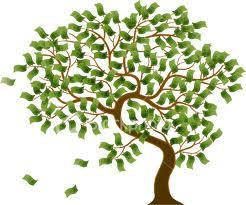
This is why my accountant shakes his head at me every year and asks "why are you doing this again?" This is just my example and I don't believe there would be many other authors brave enough to break it down like this to show you their actual income. I don't blame them, especially if you have partners who also question why you keep running a business at a loss. So why do you and is there a way to make a profit?
In the start of any business, the first couple of years are going to be tough. This was my third tax return, and I'm glad to say, even though I still made a loss, it was a smaller loss than the previous years. It will change, as my social media platform grows, I keep submitting manuscripts to bigger publishers as I earn my dues and hopefully, when I one day write the 'best seller'. Until then, I keep working at it every day, just like any small business owner.
It seems to me many authors supplement their income by writing books or ebooks on how to be successful authors. They are top sellers, easy to produce and have a large audience. You are reading this blog, right? No one would buy my book, it would be filled with the truth.
Another way that I really enjoy is to conduct workshops, do paid author visits, set up an editing business and blog. Even though it doesn't pay a million bucks, it's income. And its the part of marketing myself as an author that I really love.
Which brings me to the reason I keep going. Because I love it. I love writing picture books. I love seeing my stories in print, sharing them with people all over the world, winning awards and being recognised by my 8 year old groupies when I sell books at the local markets. It's my passion.
At the same time, I'm not stupid. I have a 5 year plan, like most organised small business owners, and if there comes a time when the money I am spending on my business is taking away from the money I need to keep a roof over my families heads, then I stop. But until that time comes, I focus, with a positive attitude, on my financial goal of making a profit as a picture book author. Stay tuned, I will let you know when it happens...
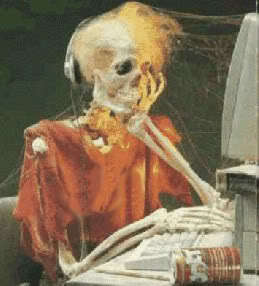
Talk soon
x Michelle
www.michelleworthington.com
www.michelleworthington.com
Published on October 06, 2015 15:00
October 5, 2015
Why Social Media for Authors only works if it's "Social".
Just posting on Facebook won't help you sell more books. There is no hard and fast rule that says the more you are online, the more people will become part of your community. When, when and how you post on social media is about more than quantity. It's about making a connection.

There is only one 'Do'...Have Fun!
If you are not enjoying spending your precious time marketing online, your readers probably aren't enjoying the experience either. Are you frustrated because you are not getting enough sales for your efforts? Then stop, because you are doing it not only for the wrong reasons, but you are posting the wrong content, at the wrong time, in the wrong way. If you were your audience, how would you feel about what you are posting? Is it fun, engaging and helpful? Be yourself. Only 30% of what you post should be about sales and marketing, the rest should be building a community of like-minded people who share common ground, so share what you feel comfortable. You need to be consistent, like a morning paper, that people can read over a cup of coffee at their own leisure, but there every day with a new snippet of information. When you have established your communities trust, then you can start planting that ground with the seeds that you are a trusted source of information. Once that has grown, you can start to harvest the crops that you have planted in the form of book sales, in an organic way. It takes time so you might as well enjoy the ride.
The 'Don'ts'
Don't post about your books every day.
Don't join every book group on Facebook and spam them with marketing.
Don't be negative
Don't worry if it feels like no one is listening
Don't post anything that could come back to haunt you
Don't post anything you wouldn't want your granny to read
Don't underestimate the power of social media
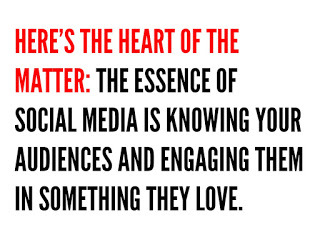
Talk soon
x Michelle
www.michelleworthington.com

There is only one 'Do'...Have Fun!
If you are not enjoying spending your precious time marketing online, your readers probably aren't enjoying the experience either. Are you frustrated because you are not getting enough sales for your efforts? Then stop, because you are doing it not only for the wrong reasons, but you are posting the wrong content, at the wrong time, in the wrong way. If you were your audience, how would you feel about what you are posting? Is it fun, engaging and helpful? Be yourself. Only 30% of what you post should be about sales and marketing, the rest should be building a community of like-minded people who share common ground, so share what you feel comfortable. You need to be consistent, like a morning paper, that people can read over a cup of coffee at their own leisure, but there every day with a new snippet of information. When you have established your communities trust, then you can start planting that ground with the seeds that you are a trusted source of information. Once that has grown, you can start to harvest the crops that you have planted in the form of book sales, in an organic way. It takes time so you might as well enjoy the ride.
The 'Don'ts'
Don't post about your books every day.
Don't join every book group on Facebook and spam them with marketing.
Don't be negative
Don't worry if it feels like no one is listening
Don't post anything that could come back to haunt you
Don't post anything you wouldn't want your granny to read
Don't underestimate the power of social media

Talk soon
x Michelle
www.michelleworthington.com
Published on October 05, 2015 15:00
October 4, 2015
The three little pigs...and their little Mummy pig
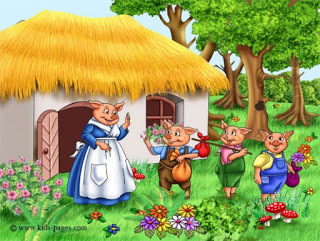 Once upon a time, there were three little pigs, and a little Mummy pig. Usually, little Mummy pig had to work during the school holidays, but she had always dreamed of spending time with her three little pigs, filling the days with educational adventures, hugs and kisses and joyous memory making activities. Finally, the day had come where she could be home for the whole holidays with her beautiful little piggies. The oldest of the three little pigs loved staying in his room all day, playing online with his teenage piggy friends and generally being as anti-social as possible. The second little pig came out of his room, played for a while and went 'whinge, whinge, whinge' all the way to the end of school holidays, that besides little Mummy pigs best ideas, there was absolutely nothing to do. The third little pig was only a very wee little baby pig, who decided that although he was getting very good at grunting, and making a big mess when he ate, like all good wee little pigs, he had no desire to learn how to walk. He has quite happy for little Mummy pig to carry him everywhere. Wee little pig would grunt and point and little Mummy pig would trot off in that general direction to keep him from screaming their brick house down. By the end of the day when big Daddy pig come home from work, little Mummy pig was slightly exhausted. But as the three little pigs were on their best behaviour when big Daddy pig got home, big Daddy pig thought little Mummy pig was insane when she tried to explain about her hard day. So, little Mummy pig waited patiently until it was time for the two bigger little pigs to go back to school so she could run up to the big bad wolf teachers and give them a big hug to say "thank you for doing what you do, you crazy, crazy, big, bad wolves." The moral of the story is, "God Bless Teachers."
Once upon a time, there were three little pigs, and a little Mummy pig. Usually, little Mummy pig had to work during the school holidays, but she had always dreamed of spending time with her three little pigs, filling the days with educational adventures, hugs and kisses and joyous memory making activities. Finally, the day had come where she could be home for the whole holidays with her beautiful little piggies. The oldest of the three little pigs loved staying in his room all day, playing online with his teenage piggy friends and generally being as anti-social as possible. The second little pig came out of his room, played for a while and went 'whinge, whinge, whinge' all the way to the end of school holidays, that besides little Mummy pigs best ideas, there was absolutely nothing to do. The third little pig was only a very wee little baby pig, who decided that although he was getting very good at grunting, and making a big mess when he ate, like all good wee little pigs, he had no desire to learn how to walk. He has quite happy for little Mummy pig to carry him everywhere. Wee little pig would grunt and point and little Mummy pig would trot off in that general direction to keep him from screaming their brick house down. By the end of the day when big Daddy pig come home from work, little Mummy pig was slightly exhausted. But as the three little pigs were on their best behaviour when big Daddy pig got home, big Daddy pig thought little Mummy pig was insane when she tried to explain about her hard day. So, little Mummy pig waited patiently until it was time for the two bigger little pigs to go back to school so she could run up to the big bad wolf teachers and give them a big hug to say "thank you for doing what you do, you crazy, crazy, big, bad wolves." The moral of the story is, "God Bless Teachers."The End.
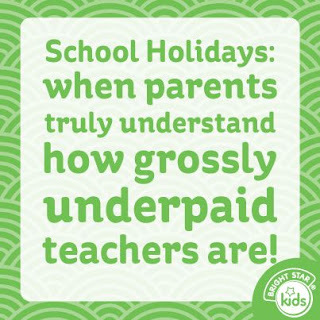
Talk soon
x Michelle
www.michelleworthington.com
www.michelleworthington.com
Published on October 04, 2015 15:00
October 1, 2015
My Literary Heroes - Paul Kelly
"Some people had sporting heroes growing up. My heroes where the people who could put down in words what my heart was saying." - Michelle Worthington
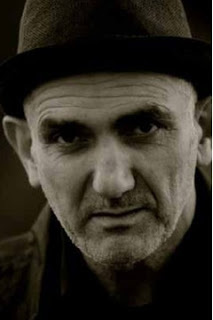 http://www.paulkelly.com.au/about Growing up in the 70's/80's, we didn't have as much influence from overseas artists as kids do today and it helped that I had a dad who was obsessed with Aussie Rock. I was introduced to songs that had a strong message and were more about storytelling than booty shaking. This has stayed with me my whole life. Musicality in words is one of the things I am most passionate about sharing in my books for children. You can play with words, just like you can play with building blocks. Listening to Paul Kelly taught me that. Storytellers are my heroes and there is no one who captures the heart of growing up and living in Australia like Paul Kelly. Some of his songs went way over my head when I was little, but I have grown into them and they became my touchstones at difficult parts of my life. His song lyrics on paper are genius but then you add music to them, and they become legendary. He is amazingly generous of spirit from all the articles I have read and the docos on TV. You can tell through his songwriting, he is open to sharing the lessons he has learnt, in a way that makes them all about the person listening, like they were written from the diary hidden under your pillow. I would love to meet Paul Kelly one day, sit across a coffee table from him and just listen to him tell me whatever he thought I needed to hear. I used to have a book of my own poetry that was destroyed by a jealous ex. I would have loved to show him that. I would never tell him I write children's books, but I would love to hear how he thinks is the best way to engage with the new generation of Australian storytellers that will build on his legacy, because it must preserved, nurtured and built upon. Please don't let artists like Paul Kelly disappear from the Australian psyche. They are what has made us unique, in a world hell bent on globalisation. If you haven't read his first work of prose How to Make Gravy, published by Penguin in 2010, please do, especially if you are of my vintage. It feels like coming home. Talk soonx Michellewww.michelleworthington.com www.michelleworthington.com
http://www.paulkelly.com.au/about Growing up in the 70's/80's, we didn't have as much influence from overseas artists as kids do today and it helped that I had a dad who was obsessed with Aussie Rock. I was introduced to songs that had a strong message and were more about storytelling than booty shaking. This has stayed with me my whole life. Musicality in words is one of the things I am most passionate about sharing in my books for children. You can play with words, just like you can play with building blocks. Listening to Paul Kelly taught me that. Storytellers are my heroes and there is no one who captures the heart of growing up and living in Australia like Paul Kelly. Some of his songs went way over my head when I was little, but I have grown into them and they became my touchstones at difficult parts of my life. His song lyrics on paper are genius but then you add music to them, and they become legendary. He is amazingly generous of spirit from all the articles I have read and the docos on TV. You can tell through his songwriting, he is open to sharing the lessons he has learnt, in a way that makes them all about the person listening, like they were written from the diary hidden under your pillow. I would love to meet Paul Kelly one day, sit across a coffee table from him and just listen to him tell me whatever he thought I needed to hear. I used to have a book of my own poetry that was destroyed by a jealous ex. I would have loved to show him that. I would never tell him I write children's books, but I would love to hear how he thinks is the best way to engage with the new generation of Australian storytellers that will build on his legacy, because it must preserved, nurtured and built upon. Please don't let artists like Paul Kelly disappear from the Australian psyche. They are what has made us unique, in a world hell bent on globalisation. If you haven't read his first work of prose How to Make Gravy, published by Penguin in 2010, please do, especially if you are of my vintage. It feels like coming home. Talk soonx Michellewww.michelleworthington.com www.michelleworthington.com
 http://www.paulkelly.com.au/about Growing up in the 70's/80's, we didn't have as much influence from overseas artists as kids do today and it helped that I had a dad who was obsessed with Aussie Rock. I was introduced to songs that had a strong message and were more about storytelling than booty shaking. This has stayed with me my whole life. Musicality in words is one of the things I am most passionate about sharing in my books for children. You can play with words, just like you can play with building blocks. Listening to Paul Kelly taught me that. Storytellers are my heroes and there is no one who captures the heart of growing up and living in Australia like Paul Kelly. Some of his songs went way over my head when I was little, but I have grown into them and they became my touchstones at difficult parts of my life. His song lyrics on paper are genius but then you add music to them, and they become legendary. He is amazingly generous of spirit from all the articles I have read and the docos on TV. You can tell through his songwriting, he is open to sharing the lessons he has learnt, in a way that makes them all about the person listening, like they were written from the diary hidden under your pillow. I would love to meet Paul Kelly one day, sit across a coffee table from him and just listen to him tell me whatever he thought I needed to hear. I used to have a book of my own poetry that was destroyed by a jealous ex. I would have loved to show him that. I would never tell him I write children's books, but I would love to hear how he thinks is the best way to engage with the new generation of Australian storytellers that will build on his legacy, because it must preserved, nurtured and built upon. Please don't let artists like Paul Kelly disappear from the Australian psyche. They are what has made us unique, in a world hell bent on globalisation. If you haven't read his first work of prose How to Make Gravy, published by Penguin in 2010, please do, especially if you are of my vintage. It feels like coming home. Talk soonx Michellewww.michelleworthington.com www.michelleworthington.com
http://www.paulkelly.com.au/about Growing up in the 70's/80's, we didn't have as much influence from overseas artists as kids do today and it helped that I had a dad who was obsessed with Aussie Rock. I was introduced to songs that had a strong message and were more about storytelling than booty shaking. This has stayed with me my whole life. Musicality in words is one of the things I am most passionate about sharing in my books for children. You can play with words, just like you can play with building blocks. Listening to Paul Kelly taught me that. Storytellers are my heroes and there is no one who captures the heart of growing up and living in Australia like Paul Kelly. Some of his songs went way over my head when I was little, but I have grown into them and they became my touchstones at difficult parts of my life. His song lyrics on paper are genius but then you add music to them, and they become legendary. He is amazingly generous of spirit from all the articles I have read and the docos on TV. You can tell through his songwriting, he is open to sharing the lessons he has learnt, in a way that makes them all about the person listening, like they were written from the diary hidden under your pillow. I would love to meet Paul Kelly one day, sit across a coffee table from him and just listen to him tell me whatever he thought I needed to hear. I used to have a book of my own poetry that was destroyed by a jealous ex. I would have loved to show him that. I would never tell him I write children's books, but I would love to hear how he thinks is the best way to engage with the new generation of Australian storytellers that will build on his legacy, because it must preserved, nurtured and built upon. Please don't let artists like Paul Kelly disappear from the Australian psyche. They are what has made us unique, in a world hell bent on globalisation. If you haven't read his first work of prose How to Make Gravy, published by Penguin in 2010, please do, especially if you are of my vintage. It feels like coming home. Talk soonx Michellewww.michelleworthington.com www.michelleworthington.com
Published on October 01, 2015 15:00
September 30, 2015
Build it and they will come; Building your online author platform
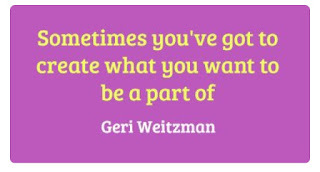 I have been doing a lot of research about authors developing a platform on social media as I will be chairing a panel at GenreCon in October and I want to make sure I've got my facts straight.
I have been doing a lot of research about authors developing a platform on social media as I will be chairing a panel at GenreCon in October and I want to make sure I've got my facts straight.Well, it's official. Isle Pilsener, who works for Hachette Australia, confirmed via twitter #askHAU that publishers do google prospective authors to make sure they have an online following and it does play a part in whether they are offered a book contract or not.
https://twitter.com/ilsepilsener
The internet gives us a platform to showcase our work like never before, including the ability to cross international borders. We have the ability to create our own buzz by social media and word of mouth. Our blogs are a breeding ground where we can exchange ideas and styles and develop author/reader realtionships. We are the first generation of authors to have this opportunity.
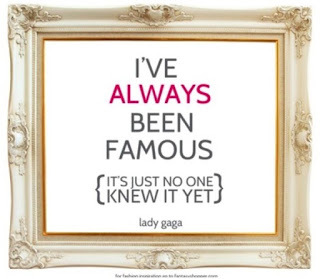
It sounds quite magical and ethereal. Build it and they will come. But even Bob the Builder couldn't get his head around just how much building an author needs to do to create the kind of social platform that publisher are expecting from us mere mortals.
Why do you think so many celebs are getting book deals? Are we turning from a culture that used to value innovation in literature into who can win popularity contests online?
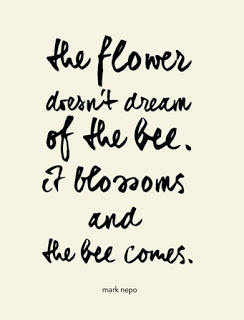
I value the relationship I have with my readers online and our connection is visible, measureable and able to be built upon either organically or financially. What is not visible and measurable, but where I enjoy building most of my relationships with readers is the meet and greets, the school visits, the market stalls, the face to face interactions that turn a stranger into a friend. How can a publisher determine how good you are at building an audience if the only criteria is that you have already built one, no matter how. I totally understand that stories can no longer be published on their own merits alone, but i'm just not sure how fair the new criteria is, considering the myriad of ways an online presence can be built and not always through real, genuine connections with readers.
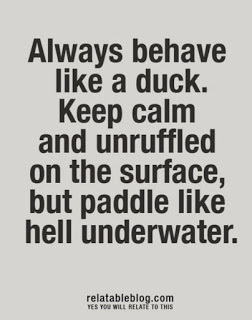
That being said, I am working my little tooshy off to build my online presence in the only way I know how, because I don't want to miss out on opportunities to be published by the bigger houses. I just need to trust that given time, and honouring my authentic voice, I will get enough 'likes.'
Talk soon
x Michellewww.michelleworthington.com
Published on September 30, 2015 15:00



